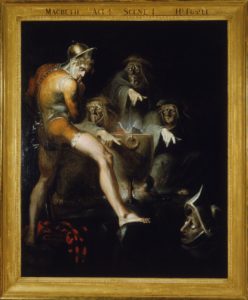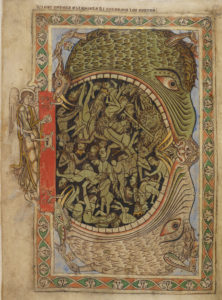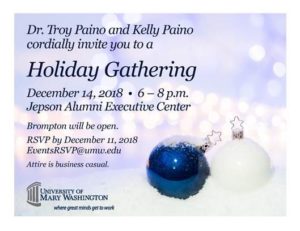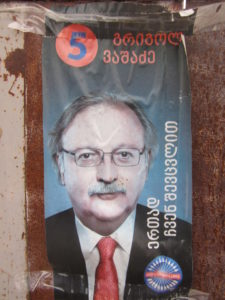Ms. Rachel Dankert, Learning and Engagement Librarian at the Folger Shakespeare Library in Washington D.C., will give a public talk on Thursday, January 31. Ms. Dankert’s talk has its origins in her research on the Painting Shakespeare exhibition held at the Folger in Spring 2018 and will explore depictions in art of the witches in Shakespeare’s tragedy Macbeth. The lecture is generously funded by the Wendy J. Shadwell ’63 Endowment and jointly sponsored by the Departments of Art & Art History, and of English, Communication, and Linguistics.
Ms. Rachel Dankert
Folger Shakespeare Library
The very painting of your fear: envisioning Macbeth and the witches
Thursday, January 31, 5 p.m.
Hurley Convergence Center (HCC) Digital Auditorium
Funding thanks to the Wendy J. Shadwell ’63 Endowment; jointly sponsored by the Departments of Art & Art History and of English, Linguistics, and Communication



